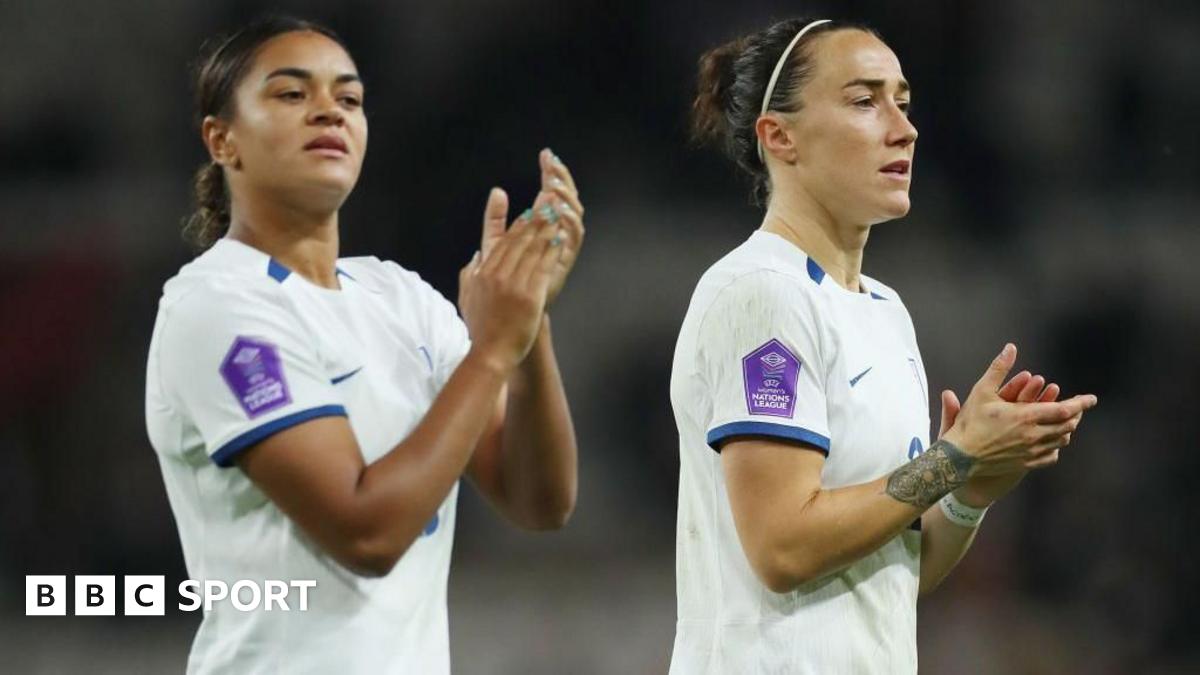Women’s Football Abuse Crisis: Shocking Rise in Online Hate
The surge in popularity of women’s football has brought not only acclaim but also a disturbing wave of online abuse targeting players. England defender Lucy Bronze recently emphasized this alarming trend, highlighting that as the sport grows, so does the vitriol directed at its athletes.
The issue gained renewed attention after Jess Carter, another Lioness star, revealed she had received relentless racist abuse during Euro 2025—prompting her to withdraw from social media entirely. In response, the Football Association (FA) pledged to collaborate with authorities to hold perpetrators accountable. Meanwhile, the England women’s team announced they would no longer take a knee before matches, signaling a shift in their strategy to combat racism and discrimination.
Why Is Women’s Football Facing an Abuse Epidemic?
Lucy Bronze, a cornerstone of England’s Euro 2025 campaign, provided a sobering analysis of the situation:
As women’s football gains more visibility, we’re attracting both admiration and aggression. Constructive criticism is part of the game, but targeted abuse is inexcusable. Unfortunately, the online harassment faced by female players is escalating at an alarming rate.
Unlike men’s football, where hostility often manifests in stadiums, the abuse in women’s football predominantly thrives online. Bronze stressed that while the solution isn’t straightforward, raising awareness and fostering collective action are essential steps forward.
We’re experiencing more abuse now than ever before. There must be a way to stop it. We might not have all the answers yet, but change is possible if everyone plays their part.
How Are Women’s Football Players Fighting Back?
Ahead of Euro 2025, England’s squad held extensive discussions about countering the rising tide of abuse—a problem they described as a defining challenge in the sport. Players like Alessia Russo (Arsenal) and Lauren James (Chelsea), who have both endured racist attacks in recent seasons, have spoken out about the psychological toll of relentless online hate.
Bronze acknowledged the team’s influence in advocating for change:
Our voices carry weight. Whether it’s demanding action from social media giants or pressuring governing bodies like FIFA and UEFA, we have the power to push for accountability. The Lionesses have built this platform—we won’t stay silent.
Despite moving away from taking the knee, the England squad is adamant that stronger anti-abuse measures are necessary. Defender Alex Greenwood explained:
Taking the knee had its moment, but its impact has faded. We need a more direct message: Abuse will not be tolerated. But we can’t fight this alone. Social media companies and football authorities must step up and enforce meaningful consequences.
The Role of Social Media in the Women’s Football Abuse Crisis
Social media remains a central battleground in the fight against abuse. Bronze called for immediate reform from platforms:
Accountability can’t be optional. Small steps forward aren’t enough. Let’s be clear—we don’t need social media, but if these platforms want athletes to engage with fans, they must actively curb abuse before it spreads.
FIFA and UEFA have introduced initiatives to combat discrimination, including real-time monitoring of abusive content and harsher penalties for offenders. During the 2023 Women’s World Cup, a FIFA-led system identified and reported over 7,000 hateful comments—yet players argue this is only the beginning.
Jess Carter’s decision to speak out has been hailed as a turning point, inspiring younger players like Michelle Agyemang to share their own experiences. Bronze praised her teammate’s bravery:
Jess sharing her story empowers others to do the same. It’s devastating that some so-called fans think hate is acceptable, but we stand together against it.
A Call to Action for the Future of Women’s Football
FIFA President Gianni Infantino condemned the abuse directed at Carter, reaffirming that discrimination has no place in football. However, players know that words alone won’t enact change.
Greenwood summarized the collective responsibility:
We’ll keep using our voices, but true progress requires collaboration—leagues, federations, and tech companies must take decisive action. This isn’t just about protecting players; it’s about safeguarding the future of women’s football.
The ascent of women’s football should be a cause for celebration, not a catalyst for hate. As Bronze and her teammates continue leveraging their influence, the hope is that stricter policies, severe repercussions for abusers, and global solidarity will finally stem the tide of discrimination.
The pressing question remains: Will meaningful change happen before more players are driven away from the sport they love?
Only time—and collective effort—will tell.
